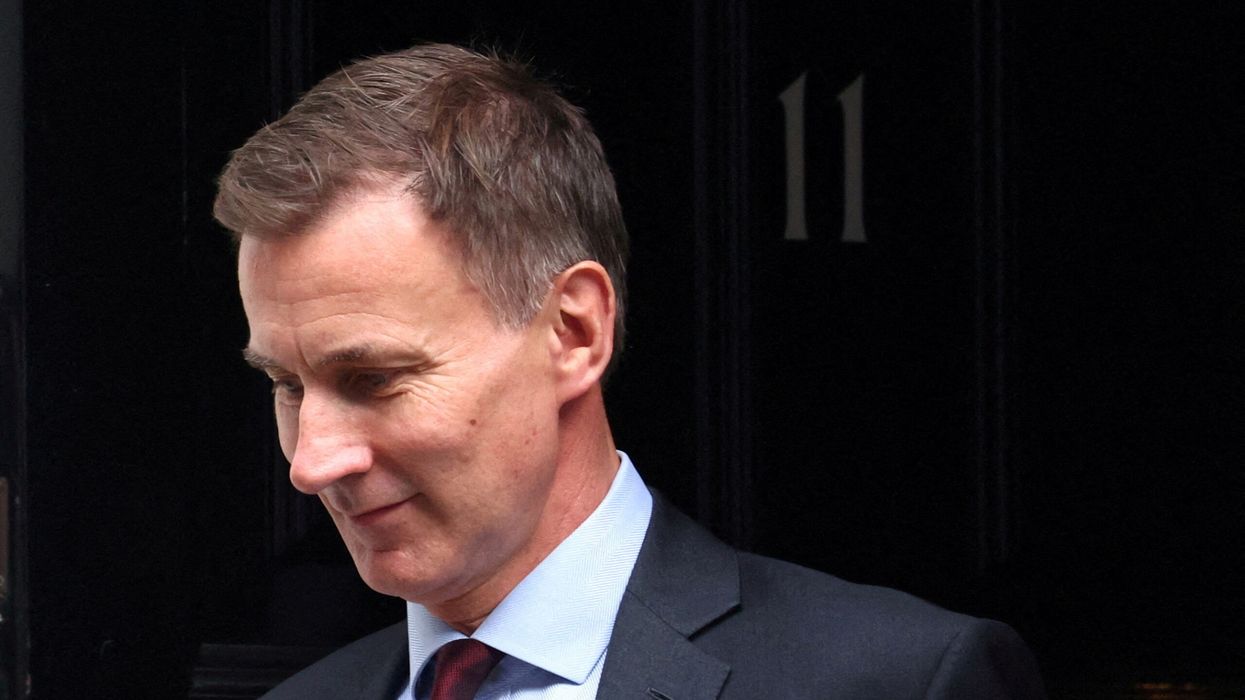Jeremy Hunt will announce tax cuts for businesses on Wednesday (22) - and possibly some for voters too - as the chancellor of the exchequer tries to speed up Britain's sluggish economy and help his struggling party before an election expected next year.
Buoyed by a fall in inflation, Hunt plans to use his Autumn Statement budget update speech to parliament to shift the government's focus to fixing the long-running weak growth problem of the world's sixth-biggest economy.
Another, more immediate concern of Hunt and Conservative prime minister Rishi Sunak will be the big opinion poll lead of the opposition Labour Party with an election likely within the next 12 months.
Hunt is due to announce ways to boost business investment by £20 billion a year over the next decade, cut taxes and get more people into work, according to excerpts of his speech shared with media.
"After a global pandemic and energy crisis, we have taken difficult decisions to put our economy back on track," Hunt is due to tell parliament. "But the work is not done."
Other measures will increase investment into high-growth industries, cut red tape, get debt falling and bring inflation down to two per cent from 4.6 per cent in the most recent data, the speech excerpts showed.
The Times reported that Hunt would cut the headline rates of national insurance for around 28 million people and make tax incentives for business investment permanent.
Hunt and Sunak have a bit more fiscal room for manoeuvre than they thought earlier this year after government borrowing came in lower than predicted in recent months, thanks to high inflation pushing up tax revenue.
But the problems they face still represent a major challenge.
The public finances are under strain after the government's huge spending to protect households from the energy price surge last year and prop up the economy during the Covid pandemic, as well as a big rise in borrowing costs.
Furthermore, Britain's budget forecasters will probably cut sharply their economic growth predictions on Wednesday due to high inflation, labour shortages and Brexit's after-effects.
That more sombre outlook will add to the challenge for Hunt to stay on course to meet his target to start reducing Britain's debt burden in five years' time.
Public debt has trebled as a share of gross domestic product over the last 20 years to almost 100 per cent.
After the meltdown in British financial markets last year, triggered by the huge tax cut plans of former prime minister Liz Truss, Hunt and Sunak have promised to move carefully.
Any big tax cuts would also prove counter-productive if they stoked inflation and forced the Bank of England into raising interest rates, which are already at a 15-year high.
With only limited fiscal firepower, many analysts think Hunt and Sunak will wait for a full budget statement, due in March, to announce big tax cuts for voters and announce only a small-scale easing of the tax burden for individuals on Wednesday.
That could anger some Conservative lawmakers who are alarmed that taxes are due to go up under the current parliament by the most since World War Two, based on calculations by the Institute for Fiscal Studies think tank.
Hunt and Sunak announced major tax-raising measures a year ago to assuage bond investors after Truss's mini-budget.
Many analysts say that in the coming years whoever runs Britain will have to raise taxes further, not cut them.
Sunak has said that as well as cutting taxes "carefully and sustainably" he wants to change welfare benefits for working-age adults to get more of them into work, a move which could help to ease a shortage of workers that is weighing on employers but leave the government open to charges of unfairness.
He has said building a sustainable energy network and a "world-class" education system are key to his growth plans too.
(Reuters)
Hunt to cut taxes to boost economy and election prospects
The chancellor of the exchequer is due to announce ways to boost business investment by £20 billion a year over the next decade




